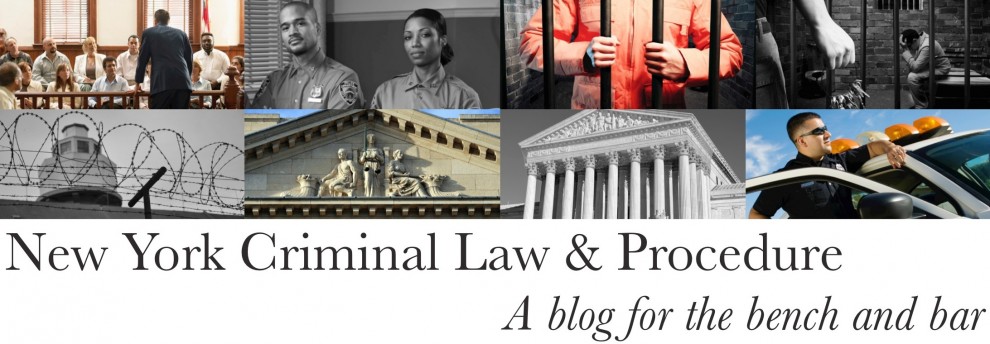The Court of Appeals took the rare step of ordering a hearing on a defendant’s CPL § 440.10 motion. In People v. Brown (Ct. App. 5/2/2019) (6-1), the defendant and a co-defendant were found guilty of Depraved Indifference Murder and related charges. The defendant’s lawyer was hired to represent a third individual, who was present at the scene, on unrelated charges. The trial court was informed of the potential conflict of interest and conducted a Gomberg inquiry after appointing conflict counsel. The defendant waived any possible conflict of interest. The case proceeded to trial with the original attorney representing the defendant.
The defendant later apparently had a change of mind and brought a CPL § 440.10 motion, arguing he was deprived of effective assistance of counsel because his lawyer had a conflict of interest. Specifically, the defendant alleged that the third individual had actually paid the lawyer to represent the defendant. He stated that the conflict counsel only explained to him that his attorney would be prohibited from cross-examining the individual if he was called as a witness; the implications of the third individual paying for the attorney’s fees were not explained to him. However, the defendant had told the trial during the Gomberg inquiry that he or his family had hired the lawyer. There was no mention of the third individual doing so. The defendant did not provide an affidavit from his trial lawyer in connection with his 440 motion.
The Court of Appeals noted that there are two types of conflicts of interest: actual or potential, but that even some actual conflicts can be waived. Without identifying the factual issue in dispute, the Court said that the motion court erred in not holding a hearing:
On this record, we conclude that Supreme Court abused its discretion in determining that a hearing was not warranted to address the allegations contained in defendant’s CPL 440.10 motion regarding Chabrowe’s representation of defendant and whether any conflict of interest existed warranting reversal.
Judge Stein, in dissent, pushed back. She noted that a motion court, in the first instance, must decide whether a 440 motion can be decided without a factual hearing. Quoting from People v. Chu-Joi, Judge Stein wrote, “[T]he court is not required to credit defendant’s evidence of fraud — particularly, his own, utterly unexplained, fraud on the trial court — that is self-serving and uncorroborated because the court does not have to accept every sworn allegation as true” (cleaned up). Here, the fraud upon the trial court was the defendant’s own statement during the Gomberg inquiry that he or his family had hired the attorney; there was no mention of the third individual doing so.
Ultimately, I am as perplexed as Judge Stein as to what factual issue the motion court is to decide. The defendant told the trial court that his lawyer was paid by him or his family and, in any event, he expressly waived any conflict of interest after consulting with conflict counsel. Where is the issue?
Underlying the majority’s decision may be justified annoyance in how the motion court handled the defendant’s CPL § 440.10 motion in the first instance. Quoting from the majority: “Supreme Court made no findings of fact or conclusions of law and denied the motion in a one sentence order, stating: ‘[d]efendant’s motion pursuant to CPL 440.10 is denied without a hearing for the reasons set forth at great length in the People’s opposing [papers].'” Appellate courts look with disfavor on trial court decisions that merely adopt one party’s briefs without further analysis. So perhaps what the Court of Appeals was looking for was some independent analysis and explanation of why the People’s position was correct. (LC)


